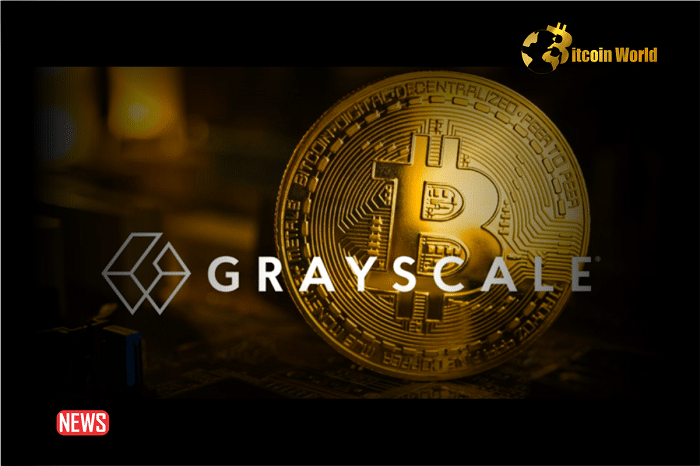Grayscale’s Bitcoin Trust (GBTC) has been under pressure since its conversion to an ETF, facing significant outflows. But is the tide turning? Recent data suggests the bleeding might be slowing down, offering a glimmer of hope for the crypto giant. Let’s dive into the numbers and explore what’s driving this shift.
GBTC Outflows: A Deep Dive
Withdrawals from GBTC have reached their lowest point since its ETF conversion in January. On February 23rd, daily outflows dropped to $44.2 million, a significant decrease from the massive exits seen earlier in the year.
- Lowest Point: $44.2 million outflow on February 23rd.
- January Exodus: Over $5.64 billion withdrawn, including a single-day outflow of $640 million.
- February Totals: Approximately $1.8 billion in outflows so far.
- Total Outflows Since Inception: A staggering $7.4 billion.
Where is the Money Going? The Rise of Competing ETFs
While GBTC is experiencing outflows, other Bitcoin ETFs are thriving. BlackRock’s IBIT and Fidelity’s FBTC have attracted substantial investments, indicating a shift in investor preference.
| ETF | Inflows Since Launch |
|---|---|
| BlackRock’s IBIT | Over $6.6 billion |
| Fidelity’s FBTC | $4.7 billion |
Why the Initial Outflow Surge? Understanding the Dynamics
Several factors contributed to the initial surge in GBTC outflows:
- Conversion Opportunity: The ETF conversion allowed existing GBTC holders to redeem their shares.
- Lower Fees: Competing ETFs offer significantly lower fees (as low as 0.19%) compared to GBTC’s 1.5%.
- Portfolio Rebalancing: Investors are rebalancing their portfolios to take advantage of the new ETF landscape.
The Genesis Factor: A $1.3 Billion GBTC Share Sale
The recent court approval for bankrupt crypto firm Genesis to sell $1.3 billion in GBTC shares adds another layer of uncertainty. This sale could potentially put further pressure on GBTC’s price.
Is GBTC Stabilizing? A Potential Turning Point
Despite the challenges, the slowed outflow pace suggests a potential stabilization for GBTC. Whether this is a temporary pause or the beginning of a long-term trend remains to be seen. Keep an eye on these key indicators:
- Outflow Volume: Monitor daily and weekly outflow numbers.
- Competing ETF Performance: Track the inflows and performance of other Bitcoin ETFs.
- Market Sentiment: Gauge overall market sentiment towards Bitcoin and crypto assets.
Disclaimer
The information provided is not trading advice. Bitcoinworld.co.in holds no liability for any investments made based on the information provided on this page. We strongly recommend independent research and/or consultation with a qualified professional before making any investment decisions.
#Binance #WRITE2EARN
Disclaimer: The information provided is not trading advice, Bitcoinworld.co.in holds no liability for any investments made based on the information provided on this page. We strongly recommend independent research and/or consultation with a qualified professional before making any investment decisions.




